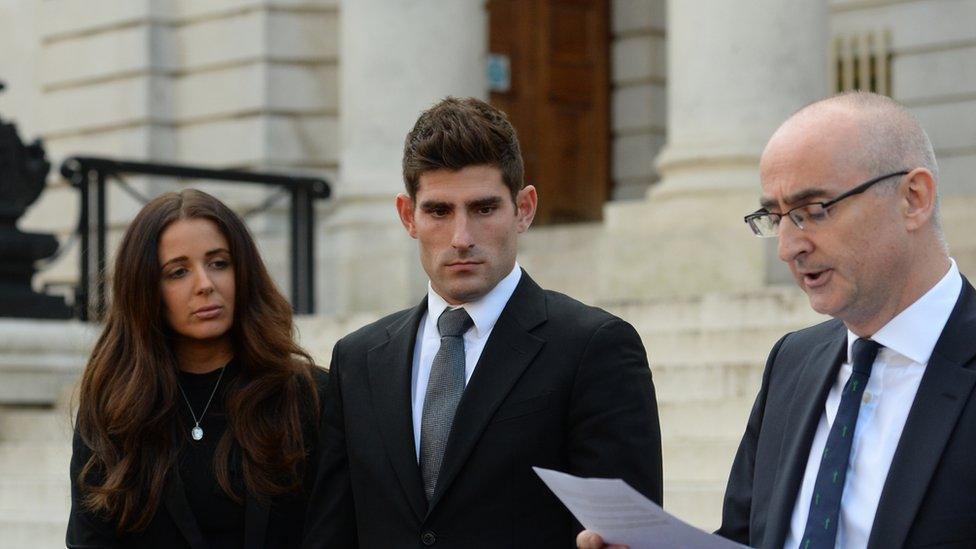Ched Evans trial: Government considers rape law change
- Published
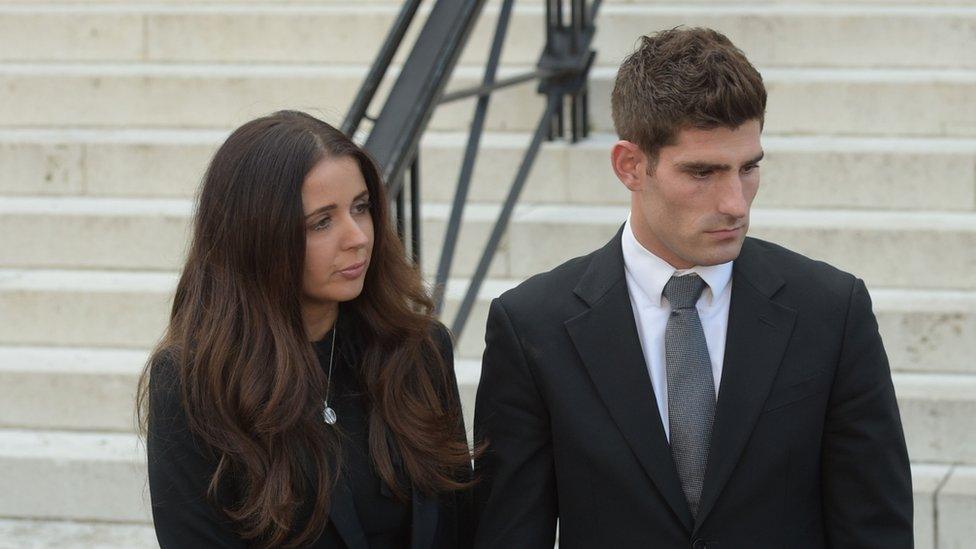
Ched Evans was supported during both his trials by his fiancee Natasha Massey
A potential change in the law relating to rape cases will be considered in the wake of the Ched Evans case, the government has said.
The Chesterfield striker was cleared of rape at Cardiff Crown Court after a retrial on 14 October.
But Labour has condemned the decision to allow the jury to hear details about the sexual history of the complainant.
Attorney General Jeremy Wright told the Commons it was not "routinely used" in such cases, but there was "a concern".
Mr Wright made the comment on Thursday when questioned by Labour's legal affairs spokesman Nick Thomas-Symonds.
In 2012, Mr Evans was found guilty of raping a 19-year-old woman in a hotel room in Rhuddlan, Denbighshire, the previous year. He served half of a five-year prison term.
But that conviction was quashed on appeal last April and he was found not guilty of the same charge at the subsequent retrial.
Mr Wright said: "We need to understand more about the decision in this particular case, we need to understand whether a change in the law is appropriate."
He said, if a change was not appropriate, the government should look at the guidance given to judges about when evidence is admissible and the instructions judges give to jurors about how it should be used.
"I think we need to do all those things before we're in a position to understand what, if any, changes are needed," he added.

Ched Evans has scored four goals in eight appearances for Chesterfield this season
During the retrial, the jury heard evidence from two men who had intimate relationships with the complainant around the time of the alleged offence of which Mr Evans was accused.
Both described "sexual behaviour" similar to that Mr Evans said he had observed during his encounter with her.
The decision to allow the details before the jury was heavily criticised by some, including blogger Jean Hatchet who said it was "callous and cruel".
It was also criticised by former solicitor general Vera Baird QC.
After the conclusion of the trial, BBC home affairs correspondent Dominic Casciani said defence lawyers are usually barred from cross-examining an alleged victim about their sexual behaviour or history to protect them from "humiliating treatment".
But there can be "exceptional reasons" to ditch that rule in the interests of a fair trial, he added.
- Published27 October 2016
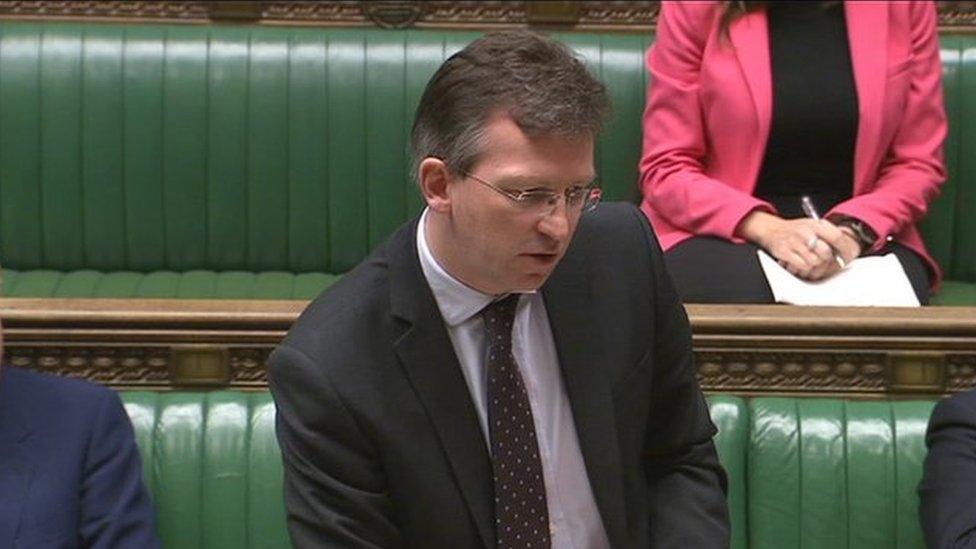
- Published21 April 2016
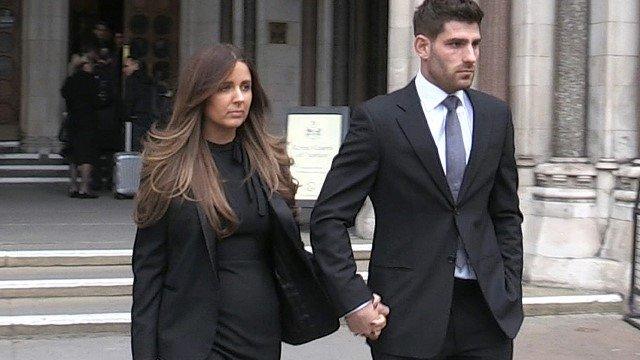
- Published21 April 2016

- Published21 April 2016
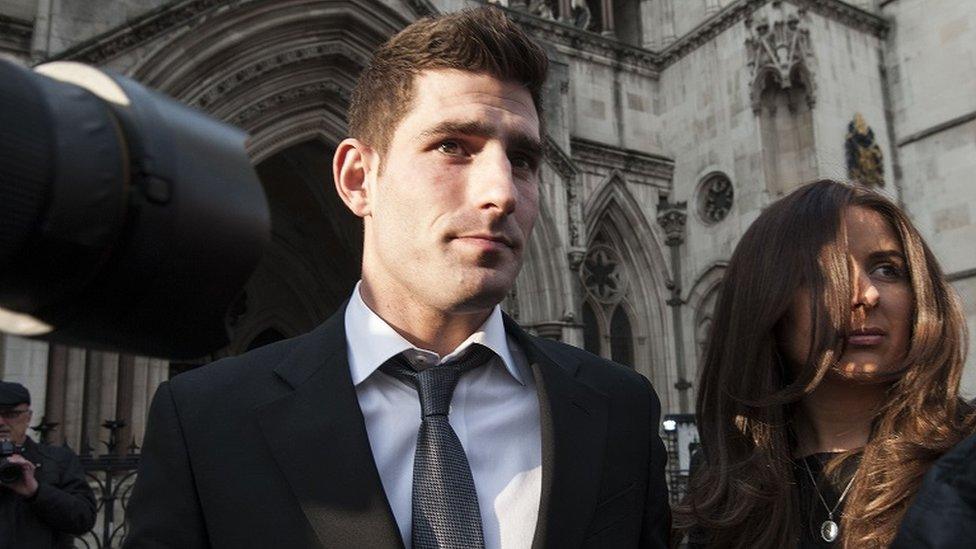
- Published20 October 2016
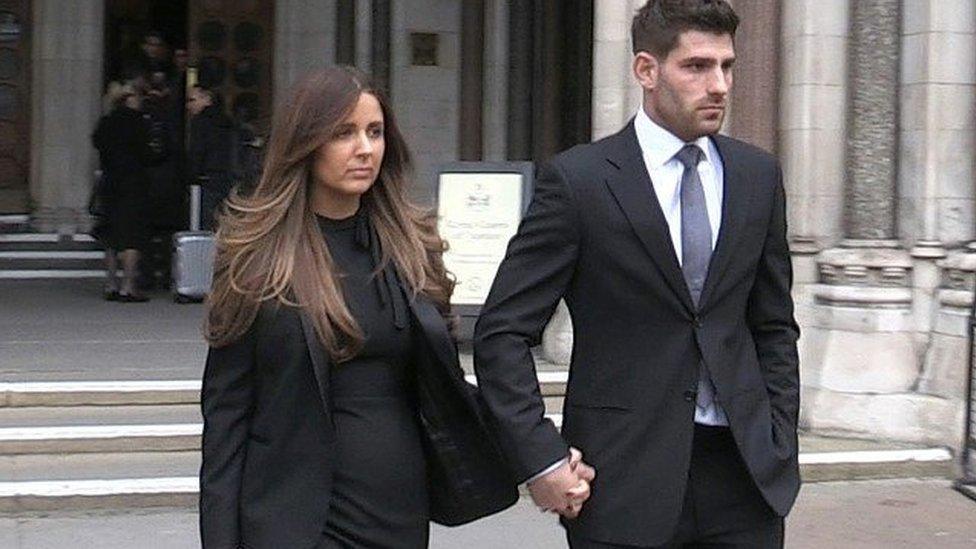
- Published18 October 2016
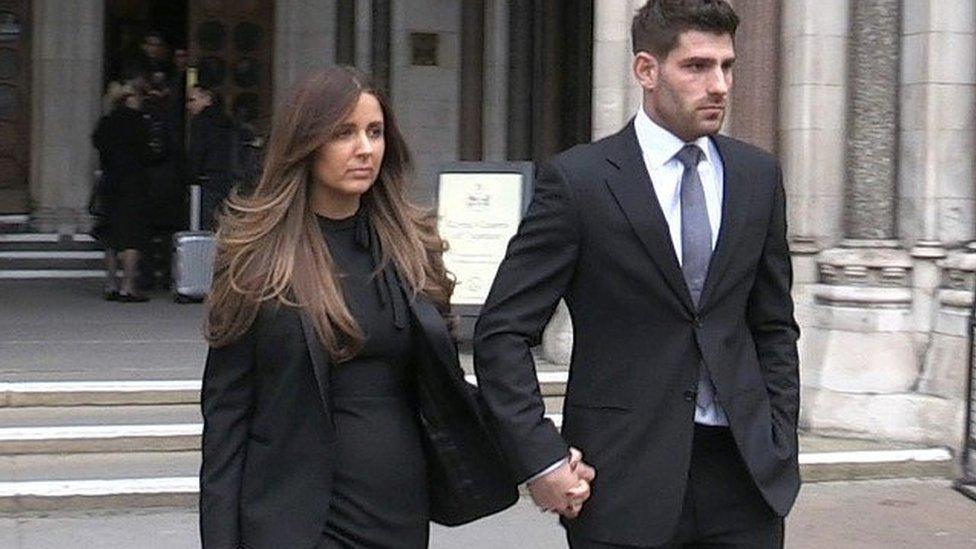
- Published15 October 2016
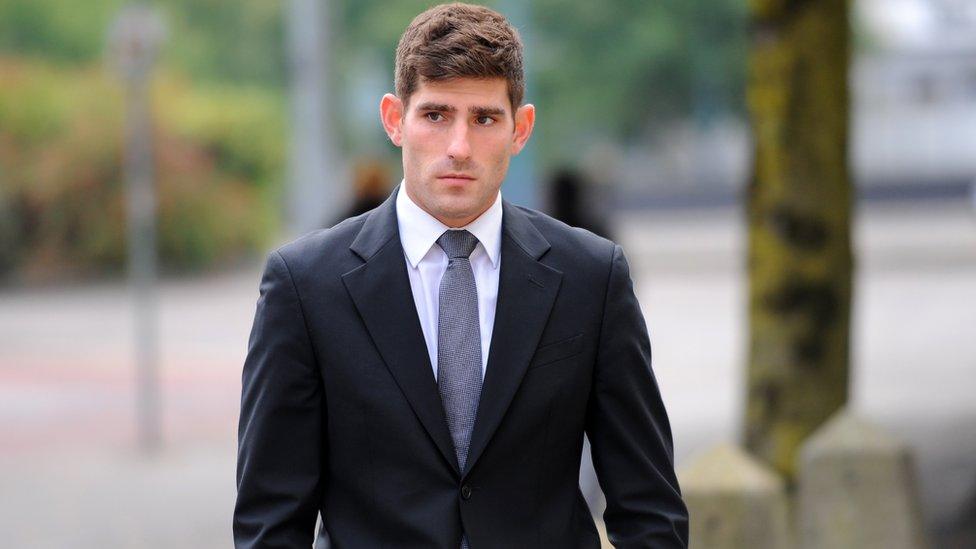
- Published14 October 2016
